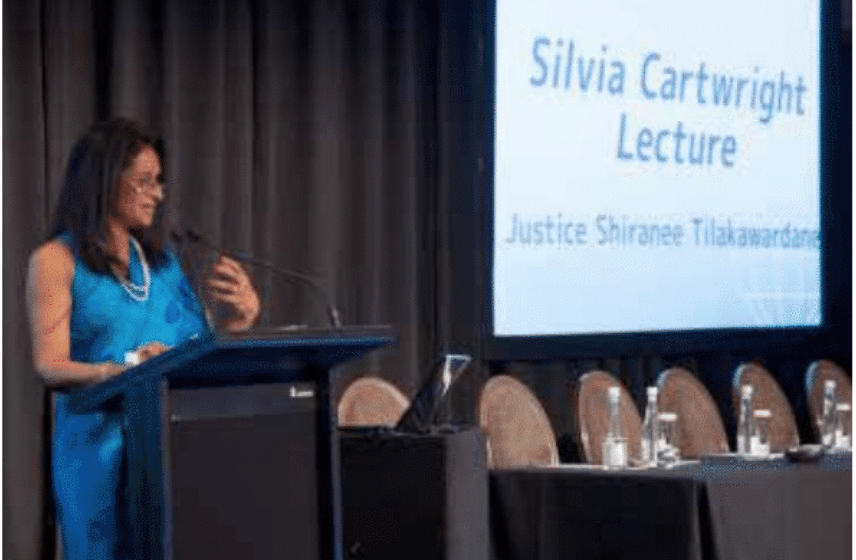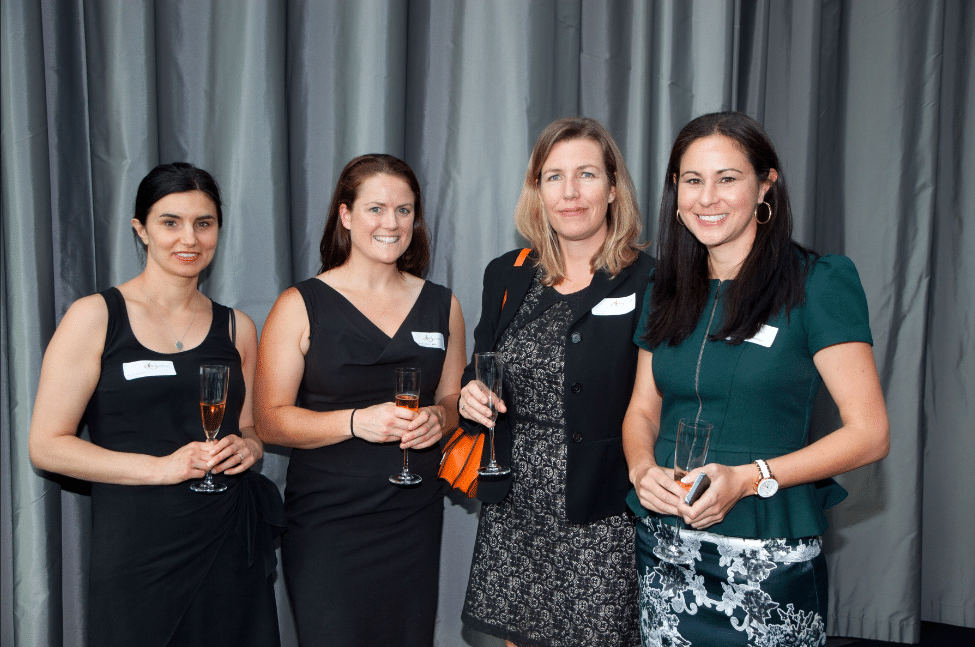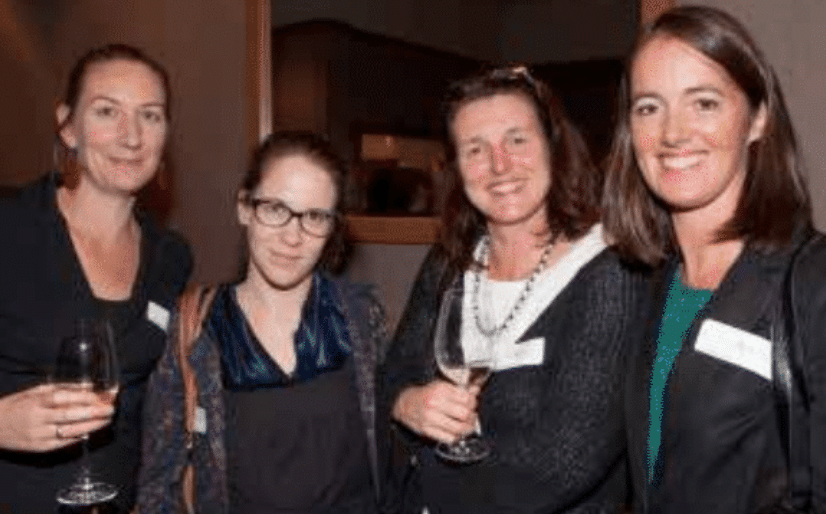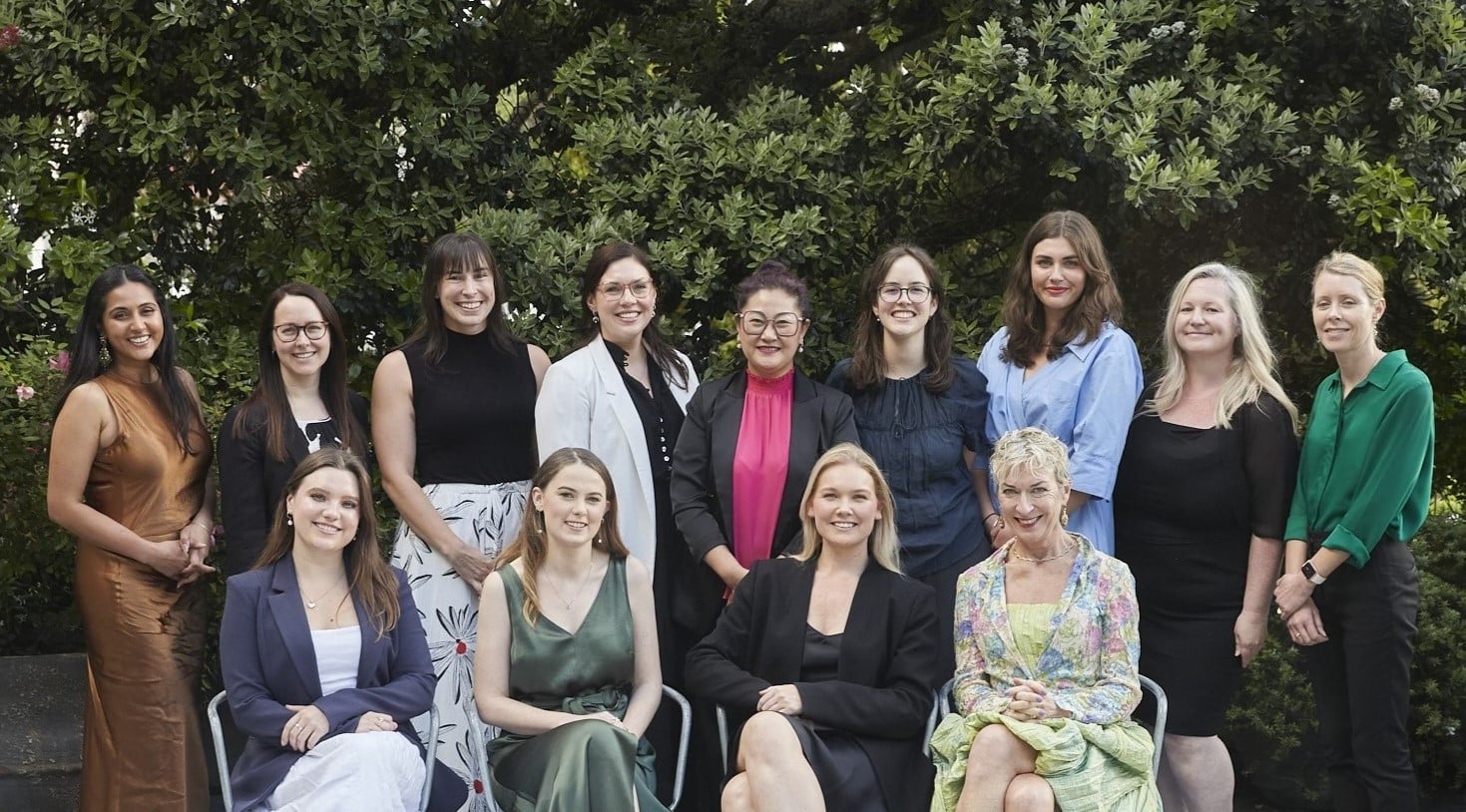President: Angela Hansen | Vice-President: Angela Stafford

The year’s theme was breaking through, to focus and reflect on what was holding women back from reaching the top, and what they could do to overcome barriers.
In February, Hon. Dame Judith Potter presented at the President’s function.
A seminar was held on the topic of success in May, this focused on what it looks like and how to achieve it.

In May, the Dame Silvia Cartwright address was given by Justice Shiranee Tilakawardanel, the first woman judge of the Sri Lankan High Court and Court of Appeal.
AWLA submitted on the Family Court Proceedings Reform Bill. The written and oral submissions addressed several proposed amendments to the bill:
- Domestic Violence Act 1995: AWLA supported expanding the definition of psychological, financial, and economic abuse, increasing penalties for breaching protection orders, and making non-attendance at assessments or programs an offence.
- Family dispute resolution: While AWLA recognised the benefits of informal resolution, they were concerned about the compulsory nature of the scheme, especially in abusive or imbalanced relationships. They also highlighted the scheme’s cost as a potential barrier and suggested flexibility of payment plans based on individual circumstances.
- Role of lawyer for child: AWLA criticised proposed changes that restricted appointing a lawyer for a child only when safety concerns arise, contrary to the principle of prioritising children’s welfare under the Care of Children Act 2004.
- Role of lawyers for parties: AWLA emphasised the crucial role of lawyers in facilitating effective participation and resolution in the Family Court. They oppose the removal of legal aid in early stages of care of children proceedings, fearing it would worsen power imbalances for vulnerable parties.
AWLA’s submissions advocated for legislation to protect vulnerable parties and ensure fair access to justice within the Family Court. AWLA was concerned with the draft bill disproportionately negatively impacting on poor and vulnerable people, many of whom were women and children. Submissions were drafted by Kristin Bradley, Kate Mills and Jess Sewak.

An initiative was launched to provide resources and advice on getting back into the workforce. The May newsletter included an article on returning to work after parental leave – what they don’t tell you and how to survive. Further anonymous pieces on returning to work were published in the July newsletter and the September newsletter. The November newsletter published an article titled Celebreak! This focused on changing perspectives around the fear of career development and parental leave.
The November newsletter announced AWLA’s part sponsorship and involvement with a 13-part television series ‘WomenPower’ hosted by Catriona MacLennan. This series was to focus on issues affecting women including:
- Women in business and boardrooms and women in the legal profession, and in particular why are there still so few women partners and female judges;
- Social media and how threats of violence are used to control women;
- The gender pay gap;
- Reproductive rights – abortion law and contraception. GP’s refusing to prescribe a woman the pill as she had not yet “done her duty” by having children;
- Rape law reform. What can be done to improve the chances of women and children receiving justice from the legal system;
- The Family Court – are women receiving justice;
- The experiences and inclusion of Māori women within these discussions;
- Women in Parliament;
- Male violence against women in intimate relationships;
- Demonisation of those receiving benefits and particularly women receiving the Domestic Purposes Benefit;
- Discrimination faced by lesbian women. What does this consist of and how can it be addressed;
- Poverty – why women are the poorest members of our society; and
- Women in other countries.
An episode focusing on AWLA’s research into progression of women in law firms was aired in November 2013. An earlier episode in October interviewed AWLA founding member Hon. Margaret Wilson DCNZM about women in Parliament.


